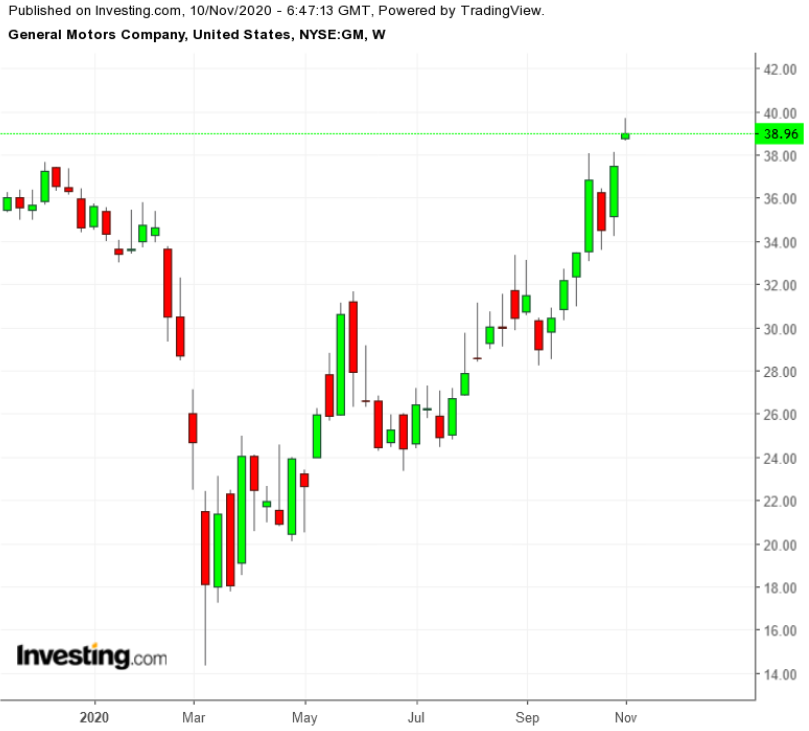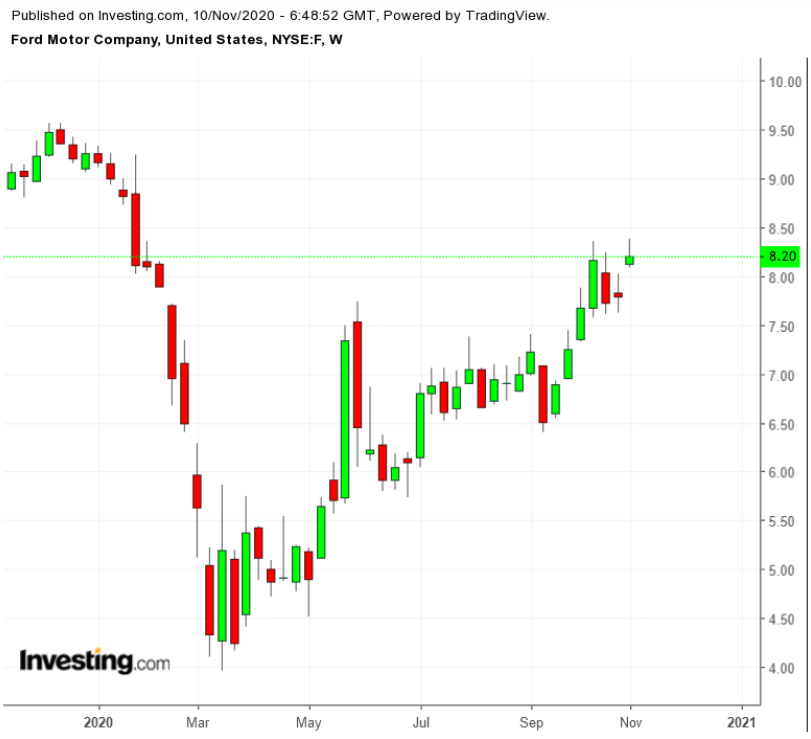The world’s largest carmakers have been hit hard by the global coronavirus pandemic. The COVID-19 outbreak destroyed demand and forced them to shut their plants this spring. The unexpected shock forced many manufacturers to cut costs, suspend their dividends and revise earnings guidance.
During the latest earnings cycle, however, it emerged that some automakers are recovering more quickly from this downturn than others as the economy reopens and business activity revives. In this post we'll focus on the two largest U.S. automakers, General Motors (NYSE:GM) and Ford (NYSE:F), to understand which stock is a better buy after their latest earnings reports.
General Motors: Turnaround On Track
The Detroit automaker reported last week that its net income rose 74% over the same quarter in 2019. The company’s adjusted earnings per share was $2.83 in the quarter, beating an analyst consensus estimate for $1.45 a share. That was up from $1.72 a year ago and better than the second quarter, when GM posted its first loss in more than a decade.
The turnaround was strong enough for Chief Executive Officer Mary Barra to announce that the company plans to resume its dividend by mid-2021 after suspending payments in April.

What’s helping GM is the company’s redesigned big pickups along with Barra's restructuring plan. The automaker’s business in China also showed signs of recovery after a two-year drop. GM’s sales in China, the world’s largest car market, rose 12% during the recent quarter, bouncing back from a steady decline in the past few years.
“We see very high demand for our full-size pickups at all levels, but especially in those high-end pickups,” Barra said in an interview on Bloomberg Television.
“We’re seeing strong and growing demand, and right now we’re building every truck we can make.”
Due to this demand surge, GM stock is outperforming its peers. From its March low, the stock has more than doubled and is currently trading at $38.96 as of Monday’s close.
The rally in GM shares gained momentum last month after the automaker revealed its new GMC Hummer EV, along with its announcement of more than $2 billion in new investments to support electric vehicles.
These steps coupled with strong sales show that the company is in a better position to take on the sector's biggest disruptor, Tesla (NASDAQ:TSLA) which has a wide lead in the electric car market.
Ford: Big Earnings Surprise
Like GM, Ford’s sales have also shown strong gains in Q3, blowing past analysts’ expectations. Surging demand for pickups helped Ford to post $0.65 a share adjusted profit, well above the $0.19 cents analyst consensus forecast.
Escalating profit in North America allowed the company to revise its full-year forecast higher—from a loss to a profit.

Before the pandemic-triggered downturn, Ford was trying to reinvent itself. After many years of rising sales, helped by the robust global economy and strong consumer interest, the carmaker was facing powerful headwinds as demand for sedans slowed. Last year, its net income fell by more than half.
To overcome these challenges, Ford decided to exit the smaller car arena and focus instead on SUVs and trucks in the U.S. These efforts, along with a management overhaul that brought an industry veteran Jim Farley at the helm, seem to be helping Ford cope with the current pandemic environment while instilling some life into its beaten down stock.
After falling to $3.96 during the March market crash, Ford shares are now trading at $8.20 as of yesterday's close.
Wall Street analysts, however, haven’t yet warmed up to this troubled Detroit automaker. Of the total 24 analysts who cover Ford stock, only four have a buy rating on the shares, with an average 12-month price target of $8.79.
Bottom Line
Overall, GM has generally outperformed Ford in recent years by posting stronger profit margins in North America, where large pickup trucks and sport-utility vehicles deliver the majority of global profit for both companies. GM has also benefited from exiting unprofitable overseas markets—still a troubled area for Ford—while remaining profitable in China despite pricing pressures and a drop-off in sales.
Ford’s latest earnings beat doesn't make the stock a buy, in our view. The carmaker’s turnaround is on shaky ground, especially when it still has to resolve many of its long-running challenges, including higher warranty costs and rapidly declining sedan sales.
For these reasons, we continue to favor GM over Ford for investors interested in taking a position in traditional auto stocks.
